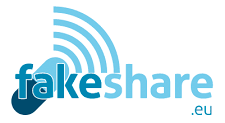AMRH
The objective of the African Medicines Regulatory Harmonization (AMRH) is to ensure that the African population has access to essential medical products and technologies.
CBRN CoE Initiative
The European Union Chemical Biological Radiological and Nuclear Risk Mitigation Centres of Excellence Initiative (or EU CBRN CoE) was launched in response to the need to strengthen the institutional capacity of countries outside the European Union to mitigate Chemical, Biological, Radiological and Nuclear risks. These risks may be created intentionally (e.g. the Sarin attack on the Japanese subway), accidentally (e.g. Bhopal) or naturally (e.g. swine flu).
Council of Europe
The Council of Europe – the continent’s leading human rights organization – has drawn up the first international treaty against counterfeit medical products and similar crimes involving threats to public health, the MEDICRIME Convention, to establish as offences: the manufacturing of counterfeit medical products, supplying, offering to supply and trafficking in counterfeit medical products, the falsification of documents, the unauthorized manufacturing or supplying of medicinal products and the marketing of medical devices that do not comply with conformity requirements.
European External Action Service (EEAS)
The European External Action Service (EEAS) is the EU’s diplomatic service. It aims to make EU foreign policy more coherent and effective, thus increasing Europe’s global influence.
European Medicines Agency (EMA)
The European Medicines Agency (EMA) protects and promotes human and animal health by evaluating and monitoring medicines within the European Union (EU) and the European Economic Area (EEA).
European Pharmacopoeia
The European Pharmacopoeia is a single reference work for the quality control of medicines in the signatory states of the Convention on its elaboration. The official standards published within provide a legal and scientific basis for quality control during the development, production and marketing processes.
Initiative 5%
The 5% Initiative aims to respond to requests for technical expertise from French-speaking countries, to support them in designing, implementing, monitoring/evaluating and measuring the impact of grants allocated by the Global Fund to Fight AIDS, Tuberculosis and Malaria.
International Development Law Organization
IDLO is an intergovernmental organization devoted to promoting justice. It works to enable governments, empower people and strengthen institutions to advocate justice, peace and sustainable development.
Interpol
INTERPOL has been carrying out a series of activities in Africa to support its member countries in the fight against pharmaceutical crime: capacity building, coordination of operations, creation of networks of experts and enhancement of public-private partnership.
French Ministry for Europe and Foreign Affairs (MEAE)
The French Ministry for Europe and Foreign Affairs (MEAE) determines and implements France’s foreign policy.
SHERLOC
The SHERLOC portal is an initiative of UNODC to facilitate the dissemination of information regarding the implementation of the UN Convention against Transnational Organized Crime, the three Protocols thereto and the international legal framework against terrorism.
UNICRI
The United Nations Interregional Crime and Justice Research Institute (UNICRI) has a mandate to design and implement improved policies and actions in the field of crime prevention and control. Its mission is to advance justice, crime prevention, security and the rule of law in support of peace, human rights and sustainable development.
UNODC
UNODC (the United Nations Office on Drugs and Crime) is mandated to assist Member States in their struggle against illicit drugs, crime and terrorism. UNODC launched in 2019 a Guide to Good Legislative Practices on Combating Falsified Medical Product-Related Crime, available in English and soon in French.
US Pharmacopeial Convention
The USP aims at improving global health through public standards and related programs that help ensure the quality, safety and benefit of medicines and foods.

